World
Mexicans with HIV/AIDS struggle with treatment access
Government in 2019 created new health care entity
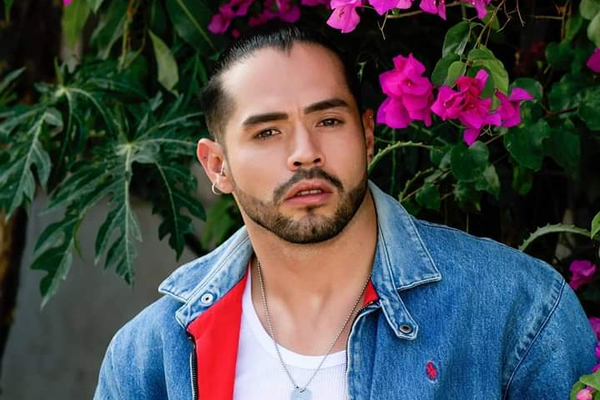
Roberto Navarro has been a dancer since he was 17. Jazz became his passion and he fell in love with classical dancing after he took many classes. And he began to teach four years later.
“I’m so happy when I teach dancing to my girls because they bring me so much joy, I feel like I help my girls to become better women, without noticing I’m some kind of a therapist,” Navarro told the Washington Blade.
He discovered the discipline of dancing in heels in 2014, which made him connect and explore more with his sexuality. He did, however, suffer a lot of bullying because of it.
Navarro — a 33-year-old gay man who is originally from Sahuayo de Morelos in Michoacán state — currently owns a dance salon. Navarro said he started to become an entrepreneur, but it hasn’t been easy because of the pandemic.
He was diagnosed with HIV in 2016. Navarro suffered from depression for several months after he learned his status.
“I woke up very overwhelmed in the morning thinking that I had to go to the hospital to make a long line of patients; to have blood drawn for fast screening tests,” he said. “We arrived at 7 in the morning and left until 1 in the afternoon.”
Navarro has been receiving treatment for almost five years, and he is still dancing.
“Subsequently, I went to my consultations every three or six months depending on my results,” he stated. “By the third month I was undetectable.”
Navarro started with Atripla, an antiretroviral drug he received through Mexico’s Seguro Popular, and he was undetectable a month later.
A shortage of Atripla forced a change to Biktarby after President Andrés Manuel López Obrador in 2019 scrapped Seguro Popular and created the Health Institute for Wellbeing (INSABI). The pharmaceutical company Gilead has said there are many counterfeit versions of the drug on the market.
Seguro Popular in 2018 had almost 52 million beneficiaries. The National Council for the Evaluation of Social Development Policy (CONEVAL) said INSABI at the end of 2020 had more than 34 million beneficiaries.
Antiretroviral drugs have been available in Mexico since 2003, although the Mexican health system is divided into various subsystems based on where one works.
- Institute of Social Security and Services for State Workers (ISSSTE)
- Mexican Institute of Social Security (IMS)
- INSABI (Health Institute for Wellbeing) that was previously known as the Seguro Popular
They vary in the time it takes to receive medication and the time for CD4 viral load tests. The availability of appointments with infectious disease specialists varies in each of the three public health systems.
People with INSABI will take longer to get tests and have access to doctors. It must also be recognized that everyone, in theory, has the possibility of accessing medicines, but it also depends on the states in which they live.
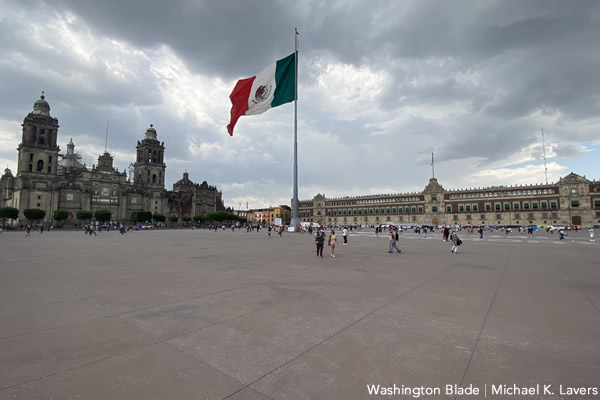
From Seguro Popular to INSABI
The number of people without access to healthcare in Mexico rose from 20 million to almost 36 million between 2018-2020. INSABI, more than a year after its creation, still does not completely cover the same amount as its predecessor.
INSABI is an independent agency through the Ministry of Health that aims to “provide and ensure the free provision of health services, medicines and other inputs associated with people without social security.” The General Health Law says it was to replace Seguro Popular, which was in place from 2004-2019.
“The situation for treatment right now, it’s quite complex, particularly because there have been many changes in the health department of Mexico, and this has to do with the fact that in 2003 when the Seguro Popular was established; there was an increase to comprehensive care for people living with HIV and resources for prevention strategies which are mainly handled through civil society organizations that obtained money from the government.” stated Ricardo Baruch, who has worked at the International Family Planning Federation for almost 15 years.
López,, who took office in 2018, sought to eliminate Seguro Popular, which was the mechanism by which access to antiretroviral drugs were given to most people living with HIV in the states with greater vulnerability. This change was done in theory to expand access for everyone, but the opposite happened.
There is less access due to the modification of purchasing mechanisms and a huge shortage throughout the country. Baruch says this situation has caused a treatment crisis across Mexico.
“The truth is that the Seguro Popular helped me a lot to have my treatments on time, what I do not like is that there is not enough staff to attend all the patients that we are waiting for our consultations,” said Erick Vasquez, a person who learned in February he is living with HIV.
Vasquez, 34, is an artist who works in Guadalajara and Playa del Carmen.
Vasquez did not have health insurance like other people through IMS. He obtained access to Seguro Popular through an organization that supports people with HIV, but he has to wait until October for his first appointment.
Vasquez, who has a very low viral load, in March began a job through which he obtained IMS. He had access to his treatments through it.
He received three months worth of Biktarvy at the end of June; one prescription for each month. He said the drug is not difficult to obtain.
“I have not had any problem with the medication, it is not difficult to get it when you are on the insurance, but there is still a long time left until October,” said Vasquez.
The cost of the antiretroviral treatment in Mexico is approximately $650 per month, and one bottle has only 30 pills.
“I have not had side effects, I have not had nausea, I don’t vomit, I take a pill daily, it is one every 24 hours,” Vasquez said. “I feel very well and I hope very soon to be undetectable.”
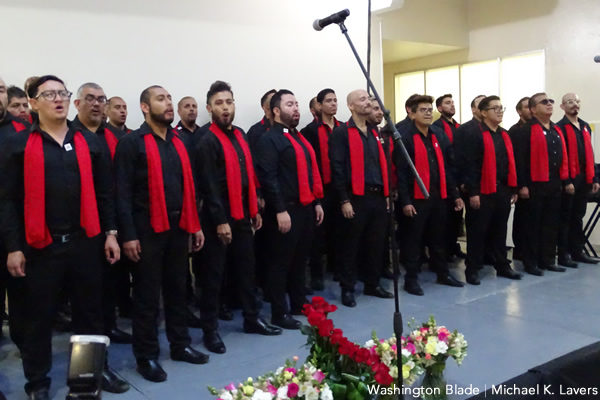
Infrastructure over health
Prevention resources were eliminated, and health resources today are used to finance the Felipe Ángeles International Airport at the Santa Lucía military base in Zumpango in Mexico state, a new refinery, the Mayan train and other major infrastructure projects. And this causes many people who want to access treatment not to receive them. It takes much
The cost of the work, including the land connected with the Mexico City International Airport and various military facilities, is set at 82,136,100,000 Mexican pesos and there are provisions to serve 19.5 million passengers the first year of operations, according to a report from the Secretariat of National Defense (SEDENA).
There are, on the other hand, far fewer HIV tests and this shortage has led to a much higher arrival of late-stage HIV cases and even AIDS in hospitals. This trend is particularly serious among transgender women and men who have sex with men.
“Here in Mexico we concentrate the HIV pandemic, and that we are at a time when this issue of shortages has not stabilized, that there is already more clarity in purchases, but it is well known that all these changes in health systems continue for a year over the years they cause the situation to be increasingly fragile and in the matter of migrants that previously there was certainty so that they could access medicines through the Seguro Popular, now there is a legal limbo for which in some states it depends: on the states, the clinic or social worker; whether or not they give you medications,” said Baruch.
“If you are not a resident or a national here in Mexico, this is a matter won for people in transit seeking political asylum or who had stayed in Mexico,” he added.
Migrants lack access to HIV treatment
Mexico is located between the three regions with the world’s highest rates of HIV: the Caribbean, Central America, and the U.S. This has been used as a foundation for a culture of hatred against migrants, according to Siobhan McManus, a biologist, philosopher, and researcher at the Center for Interdisciplinary Research in Sciences and Humanities of the National Autonomous University of Mexico.
The lack of opportunities, violence and climate change that forces people whose livelihoods depend on agriculture to abandon their homes prompts migration from Central America.
Most migrants — LGBTQ or otherwise — experience violence once they arrive in Mexico.
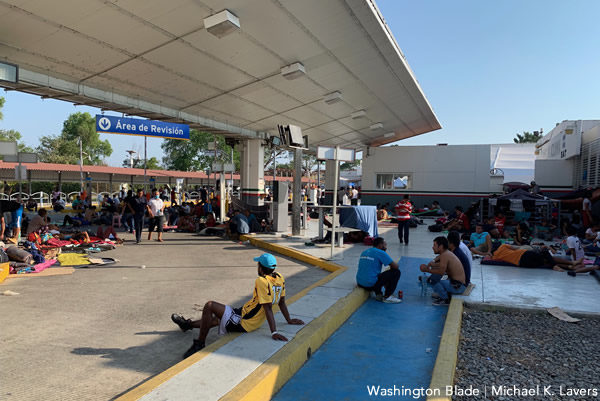
Chiapas and other states have created an extensive network of clinics known by the Spanish acronym CAPASITS (Centro Ambulatorio para la Prevención y Atención en SIDA e Infecciones de Transmisión Sexual) that are specific HIV and STD units in major towns. They are often within close proximity to most people’s homes.
Sonora and Chihuahua states, which border the U.S., often have such clinics in only one or two cities. This lack of access means people will have to travel up to six hours to access these treatments.
People who have already been receiving treatment for a long time were previously given up to three months of treatment. They now must travel every month to receive their medications because of the shortages.
PrEP available in Mexico
The shortage of medical drugs for people who already live with HIV is a current issue for the Mexican government, but they have made free PrEP available for those who want to prevent themselves from the virus.
Ivan Plascencia, a 24-years old, who lives in Guadalajara, the capital of Jalisco state , has been using PrEP for several years since he became sexually active and he never had any complaints about the medication. Plascencia instead recommends his close friends to take advantage of this prevention drug that is available in one of the CAPASITS where he lives.
Post-pandemic screening tests
There are an estimated 260,000 people in Mexico who are living with HIV. Upwards of 80 percent of them knew their status before the COVID-19 pandemic.
The number of new cases that were detected in 2020 were 60 percent less than the previous year, but this figure does not mean HIV rates have decreased.
In Jalisco, which is one of Mexico’s most populous states with upwards of 8 million people, there was a 40 percent increase in positive cases in 2020 compared to 2019. This increase has put a strain on service providers.
Greenland
The Greenland lesson for LGBTQ people
Playbook is the same for our community and Europeans
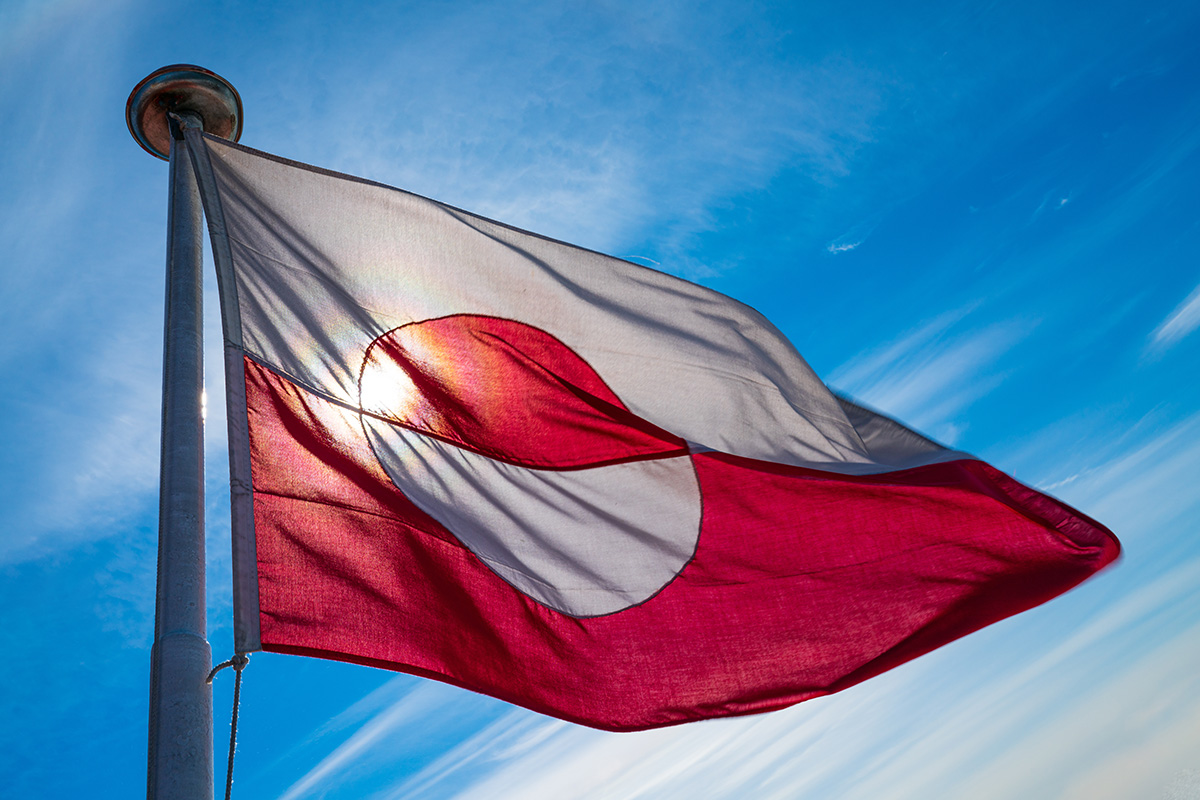
I understand my own geopolitical limits and don’t pretend to know how Europeans should respond to U.S. threats to seize Greenland or retaliate against anyone who opposes them. However, as I mentioned in March, it’s clear that for Europeans and LGBTQ+ people alike, hug-and-kiss diplomacy is over.
In practice, that means responding to the U.S. administration’s provocations with dialogue, human‑rights rhetoric, and reasoning may now be counterproductive. It looks weak. At some point, Europeans will have to draw a line and show how bullying allies and breaking international agreements carry a cost — and that the cost is unpredictable. On the surface, they have few options; like LGBTQ+ communities, they are very behind in raw power and took too long to wake up. But they still have leverage, and they can still inflict harm.
Maybe it is time for them to call the bluff. America has a great deal to lose, not least its reputation and credibility on the world stage. Stephen Miller and Pete Hegseth, with all their bravado, obviously underestimate both the short‑ and long‑term geopolitical price of ridicule. Force the United States to contemplate sending troops into an ally’s territory, and let the consequences play out in international opinion, institutions, and markets.
In the United States, LGBTQ+ communities have already endured a cascade of humiliations and live under constant threat of more. In 2025 our symbols and heroes were systematically erased or defaced: the USNS Harvey Milk was quietly renamed after a straight war hero, Admiral Rachel Levine’s title and image were scrubbed from official materials, Pride flags were banned from public buildings, World AIDS Day events were defunded or stripped of queer content, the Orlando memorial and other sites of mourning were targeted, the U.S. lead a campaign against LGBTQ+ language at the U.N., and rainbow crosswalks were literally ripped up or painted over. We cannot simply register our distress; we must articulate a response.
In practice, that means being intentional and focused. We should select a few unmistakable examples: a company that visibly broke faith with us, a vulnerable political figure whose actions demand consequences, and an institution that depends on constituencies that still need us. The tools matter less than the concentration of force — boycotts, shaming, targeted campaigning all qualify — so long as crossing certain lines produces visible, memorable costs.
A friend suggested we create what he called a “c***t committee.” I liked the discipline it implies: a deliberate, collective decision to carefully select a few targets and follow through. We need a win badly in 2026.
These thoughts are part of a broader reflection on the character of our movement I’d like to explore in the coming months. My friends know that anger and sarcasm carried me for a long time, but eventually delivered diminishing returns. I am incrementally changing these aspects of my character that stand in the way of my goals. The movement is in a similar place: the tactics that served us best are losing effectiveness because the terrain has shifted. The Greenland moment clarifies that we must have a two-pronged approach: building long-term power and, in the short term, punching a few people in the nose.
Congress
McBride, other US lawmakers travel to Denmark
Trump’s demand for Greenland’s annexation overshadowed trip

Delaware Congresswoman Sarah McBride is among the 11 members of Congress who traveled to Denmark over the past weekend amid President Donald Trump’s continued calls for the U.S. to take control of Greenland.
McBride, the first openly transgender person elected to Congress, traveled to Copenhagen, the Danish capital, with U.S. Sens. Chris Coons (D-Del.), Thom Tillis (R-N.C.), Jeanne Shaheen (D-N.H.), Dick Durbin (D-Ill.), and Lisa Murkowski (R-Alaska) and U.S. Reps. Steny Hoyer (D-Md.), Gregory Meeks (D-N.Y.), Madeleine Dean (D-Pa.), Don Bacon (R-Neb.), and Sarah Jacobs (D-Calif.). The lawmakers met with Danish Prime Minister Mette Frederiksen and Greenlandic MP Pipaluk Lynge, among others.
“I’m grateful to Sen. Coons for his leadership in bringing together a bipartisan, bicameral delegation to reaffirm our support in Congress for our NATO ally, Denmark,” said McBride in a press release that detailed the trip. “Delaware understands that our security and prosperity depend on strong partnerships rooted in mutual respect, sovereignty, and self-determination. At a time of growing global instability, this trip could not be more poignant.”
Greenland is a self-governing territory of Denmark with a population of less than 60,000 people. Trump maintains the U.S. needs to control the mineral-rich island in the Arctic Ocean between Europe and North America because of national security.
The Associated Press notes thousands of people on Saturday in Nuuk, the Greenlandic capital, protested against Trump. British Prime Minister Keir Starmer is among those who have criticized Trump over his suggestion the U.S. would impose tariffs against countries that do not support U.S. annexation of Greenland.
A poll that Sermitsiaq, a Greenlandic newspaper, and Berlingske, a Danish newspaper, commissioned last January indicates 85 percent do not want Greenland to become part of the U.S. The pro-independence Demokraatit party won parliamentary elections that took place on March 12, 2025.
“At this critical juncture for our countries, our message was clear as members of Congress: we value the U.S.-Denmark partnership, the NATO alliance, and the right of Greenlanders to self-determination,” said McBride on Sunday in a Facebook post that contained pictures of her and her fellow lawmakers meeting with their Danish and Greenlandic counterparts.
Colombia
Gay Venezuelan opposition leader: Country’s future uncertain after Maduro ouster
Yendri Velásquez fled to Colombia in 2024 after authorities ‘arbitrarily detained’ him

A gay Venezuelan opposition leader who currently lives in Colombia says his country’s future is uncertain in the wake of now former President Nicolás Maduro’s ouster.
The Washington Blade spoke with Yendri Velásquez on Thursday, 12 days after American forces seized Maduro and his wife, Cilia Flores, at their home in Caracas, the Venezuelan capital, during an overnight operation.
Maduro and Flores on Jan. 5 pleaded not guilty to federal drug charges in New York. The Venezuelan National Assembly the day before swore in Delcy Rodríguez, who was Maduro’s vice president, as the country’s acting president.
Velásquez, who lives in the Colombian capital of Bogotá, described the events surrounding Maduro’s ouster as “very confusing.”
“It was a very surprising thing that left me in shock,” Velásquez told the Blade. “We also thought, at least from the perspective of human rights, that the United States was going to respect international law and not go to the extreme of bombing and extracting Maduro.”
“Other questions also arise,” he added. “What could have been done? What else could have been done to avoid reaching this point? That is the biggest question posed to the international community, to other countries, to the human rights mechanisms we established before Trump violated international law, precisely to preserve these mechanisms and protect the human rights of Venezuelan people and those of us who have been forced to flee.”
Velásquez three years ago founded the Venezuelan Observatory of LGBTIQ+ Violence. He also worked with Tamara Adrián, a lawyer who in 2015 became the first openly transgender woman elected to the Venezuelan National Assembly, for more than a decade.
Members of Venezuela’s military counterintelligence agency, known by the Spanish acronym DGCIM, on Aug. 3, 2024, “arbitrarily detained” Velásquez as he was trying to leave the country to attend a U.N. human rights event in Geneva.
Velásquez told the Blade he was “forcibly disappeared” for nearly nine hours and suffered “psychological torture.” He fled to Colombia upon his release.
Two men on Oct. 14, 2025, shot Velásquez and Luis Peche Arteaga, a Venezuelan political consultant, as they left a Bogotá building.
The assailants shot Velásquez eight times, leaving him with a fractured arm and hip. Velásquez told the Blade he has undergone multiple surgeries and has had to learn how to walk again.
“This recovery has been quite fast, better than we expected, but I still need to finish the healing process for a fractured arm and complete the physical therapy for the hip replacement I had to undergo as a result of these gunshots,” he said.

María Corina Machado, who won the 2025 Nobel Peace Prize, and other Venezuelan opposition leaders said Maduro’s government targeted Velásquez and Peche. Colombian President Gustavo Petro and his government also condemned the attack.
Colombian authorities have yet to arrest anyone in connection with the attack.
Velásquez noted to the Blade he couldn’t sleep on Jan. 3 because “of the aches and pains” from the shooting. He said a friend who is “helping me out and looking after my things” was the one who told him about the operation the U.S. carried out to seize Maduro and Flores.
“He said, ‘Look at this! They’re bombing Caracas! And I was like, ‘What is this?'” recalled Velásquez.
White House ‘not necessarily’ promoting human rights agenda
Velásquez noted Rodríguez “is and forms part of the mechanisms of repression” that includes DGCIM and other “repressive state forces that have not only repressed, but also tortured, imprisoned, and disappeared people simply for defending the right to vote in (the) 2024 (election), simply for protesting, simply for accompanying family members.” Velásquez told the Blade that “there isn’t much hope that things will change” in Venezuela with Rodríguez as president.
“Let’s hope that countries and the international community can establish the necessary dialogues, with the necessary intervention and pressure, diplomatically, with this interim government,” said Velásquez, who noted hundreds of political prisoners remain in custody.
He told the Blade the Trump-Vance administration does not “not necessarily” have “an agenda committed to human rights. And we’ve seen this in their actions domestically, but also in their dealings with other countries.”
“Our hope is that the rest of the international community, more than the U.S. government, will take action,” said Velásquez. “This is a crucial moment to preserve democratic institutions worldwide, to preserve human rights.”
Velásquez specifically urged the European Union, Colombia, Brazil, and other Latin American countries “to stop turning a blind eye to what is happening and to establish bridges and channels of communication that guarantee a human rights agenda” and to try “to curb the military advances that the United States may still be considering.”

Velásquez told the Blade he also plans to return to Venezuela when it is safe for him to do so.
“My plan will always be to return to Venezuela, at least when it’s no longer a risk,” he said. “The conditions aren’t right for me to return because this interim government is a continuation of Maduro’s government.”
Editor’s note: International News Editor Michael K. Lavers was on assignment in Bogotá, Colombia, from Jan. 5-10.




















